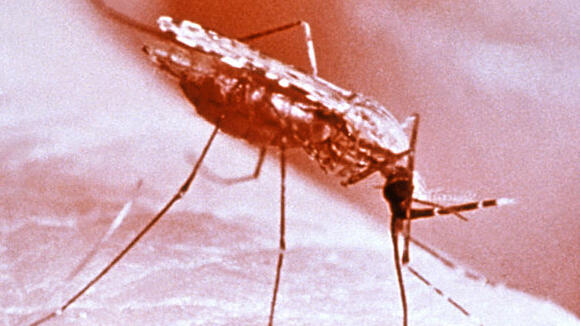
This work involved in the study, which is published today in the journal Parasites and Vectors, is a vital step in providing a real evaluation of the potential of transgenic mosquitoes in a more natural environment than the usual laboratory cages. This link between the laboratory and the field gives information needed to make more reliable field predictions and the paper demonstrates that there is real potential for population reductions with this strain of mosquito.
Dr Facchinelli explained: “Genetic manipulation of malaria mosquitoes is currently one of the most promising vector control, and thus disease control, technology. Its development is driven by a lack of effective vaccines, the limitations of current vector control strategies and the rapid spread of insecticide and drug resistance. A recent rise in malaria cases now threatens the substantial reduction in disease burden of the past decades and new control methods are urgently needed.”
Releases of transgenic males of the Ag(PMB)1 line caused a male-biased sex-ratio distortion of 73% and 80% males with 1:1 and 3:1 release ratios. With this information, mathematical modelling by Ace North from the University of Oxford predicts that such strains have potential to contribute towards local suppression of mosquitoes.
These strains are an important intermediate step between classical sterile insect technique (SIT) and the much discussed ‘Gene Drive’ systems. They are ideal for small scale field testing of capacity and effect and have an in-built limited persistence in nature.
Dr Facchinelli added: “Our study emphasises the importance of trials in large insectary chambers, like those present at LSTM, where experiments with free-flying mosquitoes can take place. In these it is possible to reproduce the natural swarming behaviour of African malaria vectors and create environmental conditions close to those present in nature”.
Field deployment of vector management technologies capable of effectively controlling malaria transmission is a challenging goal being approached on many fronts. This collaborative study, with authors from LSTM, the University of Perugia, Oxford University, the Centers for Disease Control and Prevention and Imperial College London is a small, but essential step.
The work took place in facilities at the University of Perugia, Italy, and was supported by Target Malaria, a not-for-profit consortium which seeks to develop novel transgenic Anopheles strains to reduce populations of malaria-transmitting mosquitoes.
Luca Facchinelli, Ace R. North, C. Matilda Collins, Miriam Menichelli, Tania Persampieri, Alessandro Bucci, Roberta Spaccapelo, Andrea Crisanti & Mark Q. Benedict (2019). Large-cage assessment of a transgenic sex-ratio distortion strain on populations of an African malaria vector. Parasites and Vectors, DOI: https://doi.org/10.1186/s13071-019-3289-y